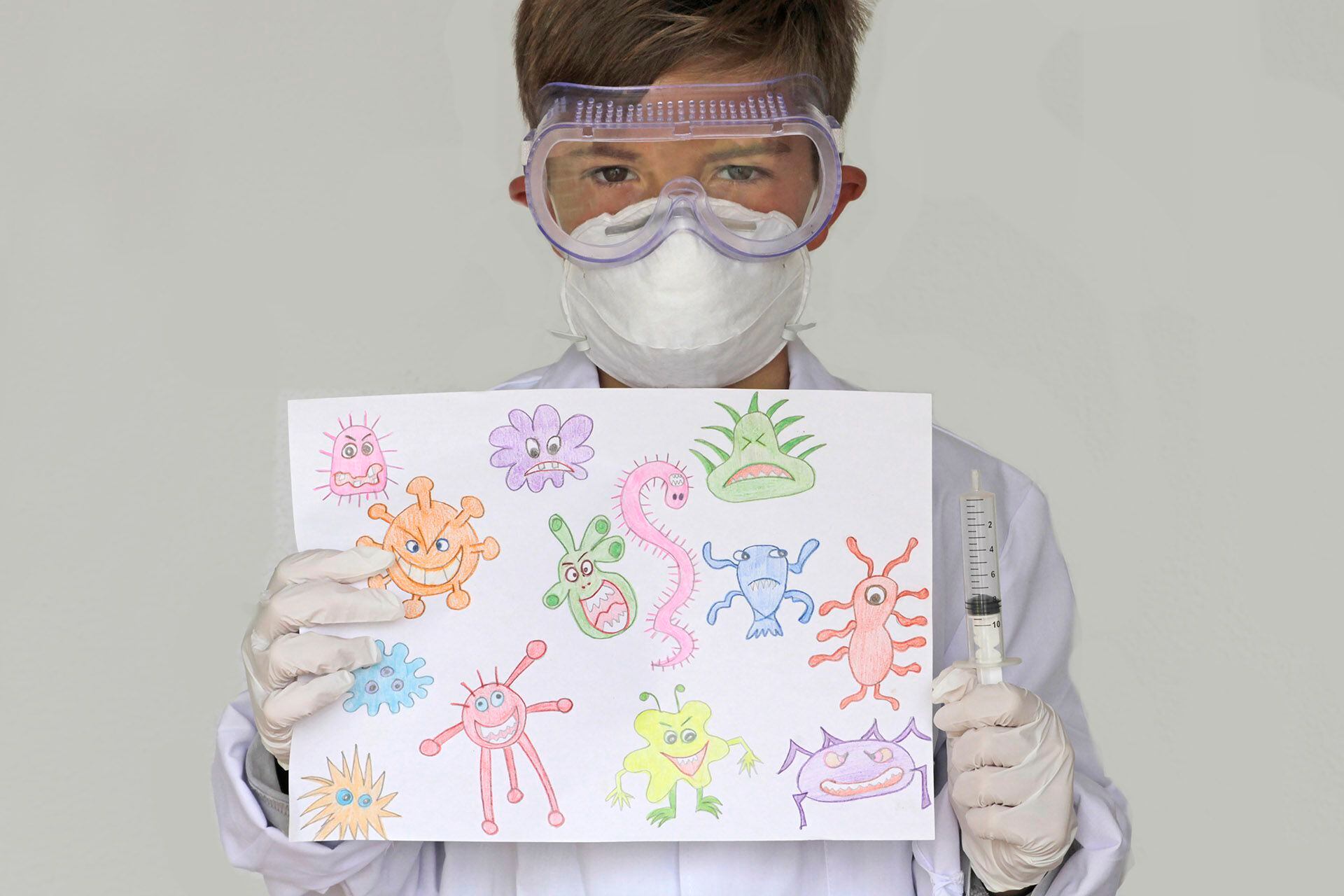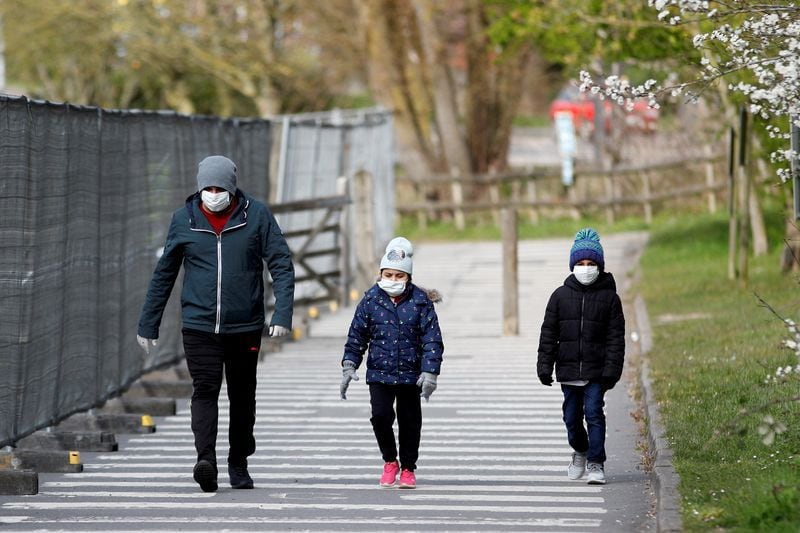
Since the beginning of the pandemic, the need to understand the differential causes that involve children's health in the face of COVID-19 has been under the analysis of specialists. SARS-CoV-2 infection triggers adaptive immune responses of T and B cells. This is a natural effect of the body when facing a disease. This reaction has been distinctive in adults than in children.
According to a new research published in the scientific journal Nature, still in a peer-reviewed condition and conducted by a group of professionals belonging to the National Institutes of Health of the United States (NIAID), most studies have so far been focused on peripheral blood (the one obtained by venous puncture), which may not fully reflect immune responses in tissues at the site of infection.
In view of this, specialists, considering that SARS-CoV-2 infection occurs in the upper respiratory tract, decided to concentrate on the lymph nodes closest to the site of entry of the virus. This is in the tonsils and adenoids, present in the area of the nose and throat.
It is in these organs where tissue-specific T and B cell responses are generated against SARS-CoV-2 antigens. Operations to remove adenoids and tonsils are frequent surgeries in children. This alerted specialists to make them the focus of the study of local adaptive immune responses.

It had already been possible for scientists to prove that antibody levels are short-lived in adults who died from COVID-19, even in thoracic lymph node analysis. This contrasts with the hypothesis that scientists were able to verify when collecting peripheral blood, tonsils and adenoids from 110 children who underwent surgery to remove these organs. As reported in the study, all participants tested negative for COVID-19 according to an RT-PCR test performed 72 hours before each surgery. Twenty-four participants showed evidence of previous SARS-CoV-2 infection, with a confirmed positive RT-PCR test or the presence of neutralizing antibodies in the serum.
The specialists' conclusions determined that the tonsils and adenoids of children convalescing from COVID-19 had a lower proportion of virgin B and T cells, which implied an adaptation of these cells to respond to the presence of the virus. These changes, as verified in the follow-up of the patients in the sample, lasted months after SARS-CoV-2 infection. At the same time, these modified cells had a phenotype characteristic of tissue-resident memory T cells. These activated and cytotoxic T cells with higher cytokine production and, therefore, more willing to protect the host from infection, could also be located by researchers in lymphatic tissues, where they were expressed enriched.

“Our results,” explained Kalpana Manthiram, the study's first author, NIAID researcher and infectious disease specialist at Children's Hospital in Boston, United States, “show robust, tissue-specific adaptive immune responses to SARS-CoV-2 in the respiratory tract higher level of children weeks or months after acute infection, which provides evidence of persistent localized immunity to this respiratory virus”.
In this paper, the specialists were unable to accurately determine all the dates of infection of those who passed the disease, even because many of them were not aware of suffering from COVID-19 until the results of the analyzes carried out specifically for this research.
Another limiting variable in the research is that some of the children convalescing from COVID-19 underwent tonsillectomy for sleep disorders, which may be the result of a previous immune disorder that could influence immune responses.
KEEP READING
Últimas Noticias
Debanhi Escobar: they secured the motel where she was found lifeless in a cistern
Members of the Specialized Prosecutor's Office in Nuevo León secured the Nueva Castilla Motel as part of the investigations into the case

The oldest person in the world died at the age of 119
Kane Tanaka lived in Japan. She was born six months earlier than George Orwell, the same year that the Wright brothers first flew, and Marie Curie became the first woman to win a Nobel Prize

Macabre find in CDMX: they left a body bagged and tied in a taxi
The body was left in the back seats of the car. It was covered with black bags and tied with industrial tape
The eagles of America will face Manchester City in a duel of legends. Here are the details
The top Mexican football champion will play a match with Pep Guardiola's squad in the Lone Star Cup

Why is it good to bring dogs out to know the world when they are puppies
A so-called protection against the spread of diseases threatens the integral development of dogs



